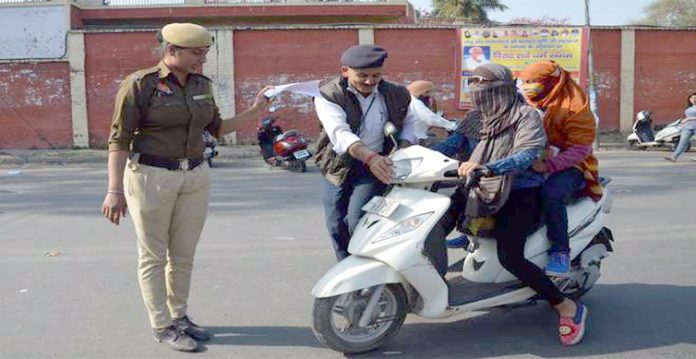Imagine stepping onto road. You see a motorcyclist zipping by without a helmet, a truck overloaded with goods, someone jumping a red light, and cars parked haphazardly on sidewalks. Sound familiar? Unfortunately, this isn’t just your everyday chaos—it’s a glimpse into a deeper problem plaguing India’s road culture.
In 2024 alone, traffic challans (fines) worth ₹12,000 crore were issued across the country. Shockingly, ₹9,000 crore remain unpaid. That’s more than just a bureaucratic hiccup—it’s a warning sign of a national crisis.
According to a report by CARS24 titled “The Great Indian Challan Crisis,” more than 8 crore challans were issued last year. That’s nearly one for every second vehicle on the road!
- In Gurugram, over 4,500 challans are issued every single day.
- In Noida, authorities issued fines worth ₹3 lakh in just one month for helmet violations alone.
These numbers aren’t just staggering—they’re damning. They show that rule-breaking has become the norm, not the exception.
Also Read: RTI Reveals Telangana Police Vehicles Owe Over ₹68 Lakh in Unpaid Traffic Fines
Here’s where it gets even more concerning: according to surveys conducted for the report,
- Only 43.9% of drivers follow traffic laws regardless of police presence.
- 31.2% admit they only adjust their driving if they see the police.
- 17.6% actively look out for cops to dodge fines.
This points to a troubling mindset: laws are followed only when enforcement is visible. Civic responsibility? That seems optional for too many.
Some violations are so extreme, they almost sound fictional:
- A truck owner in Haryana was fined ₹2 lakh for overloading by 18 tonnes.
- A two-wheeler rider in Bengaluru racked up 475 violations, totaling ₹2.91 lakh in fines.
These aren’t just isolated incidents—they represent a nationwide culture of disregard for rules.
Most common violations include:
- Over-speeding (nearly 50% of all challans)
- Riding without helmets or driving without seat belts
- Illegal parking
- Signal jumping
Each of these isn’t just a rule broken—it’s a life put at risk. Our roads are among the deadliest in the world, and these behaviors are a major reason why.
Despite digitization, stricter laws, and hefty fines, the enforcement system still struggles:
- 75% of challans go unpaid.
- There’s no clear deterrent if most people don’t fear consequences.
- The myth that only two-wheeler riders violate rules? Busted. 55% of challans were issued to four-wheelers, while the remaining 45% went to two-wheelers.
We Need a Mindset Shift, Not Just New Laws
This isn’t just a legal problem—it’s a cultural one. We need to stop seeing traffic rules as obstacles and start viewing them as lifesaving measures.
👉 What’s the way forward?
- Civic education in schools, colleges, and workplaces.
- Awareness campaigns that connect emotionally, not just legally.
- Stronger digital enforcement tied to real consequences—like insurance hikes, license suspensions, and legal action for repeated defaulters.
As CARS24 Co-founder Gajendra Jangid rightly said, “Every traffic violation is a silent vote against civic order. If we want safer cities, we need a cultural shift from compliance out of fear to responsibility out of pride.”
India doesn’t need more rules—it needs more respect for the ones we already have. The streets won’t become safer until we stop blaming the system and start fixing our behavior.
(This story is sourced from a third-party syndicated feed. Raavi Media takes no responsibility or liability of any nature. Raavi Media management/ythisnews.com can alter or delete the content without notice for any reason.)


